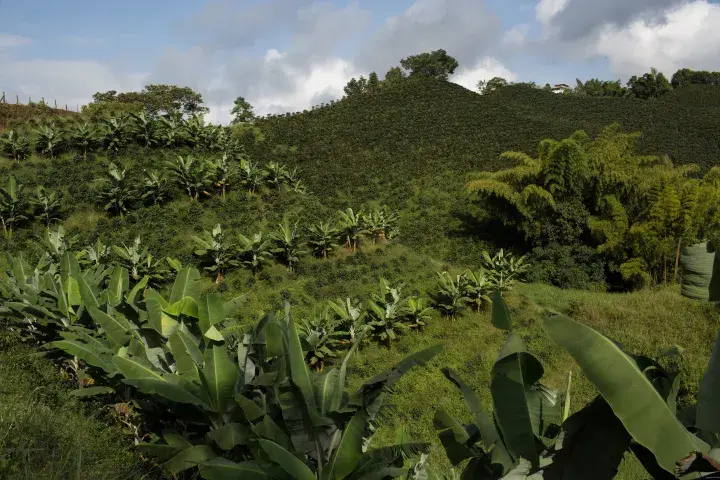Collaboration to promote sustainability assurance through standards and accredited conformity assessment.
ISEAL in collaboration with the International Accreditation Forum (IAF), United Nations Development Programme (UNDP), IIOC, IQNET, and TIC Council, is pleased to announce a groundbreaking joint statement on sustainability assurance. This collaborative effort aims to address urgent sustainability challenges by emphasising the vital role of consensus-based standards and accredited conformity assessment in driving positive impact.
The pressing issues of social inequality, environmental degradation, and unsustainable resource consumption demand immediate action. Climate change, biodiversity loss, and resource depletion are already wreaking havoc on communities, ecosystems, and economies. Recognising this urgency and also the need for a sustainable future, the six signatory organisations have joined forces to advocate for credible and effective sustainability assurance.
Consensus-based standards and accredited conformity assessment are identified as critical tools to establish trust, foster innovation, and drive improved sustainability performance. By providing independent, third-party verification, accredited conformity assessment builds trust and confidence in sustainable products, practices, organisations, and services. The transparency and consistency offered by consensus-based standards enables organisations to compare their performance, identify areas for improvement, and adopt sustainable practices.
This joint statement underscores the importance of global interoperability, recognising the need for seamless integration of sustainability practices across borders. The joint statement highlights the role of accredited conformity assessment in promoting international trade, cooperation, and harmonisation of evaluations outputs. Additionally, the statement emphasises the major significance of competence, market-ready solutions, regulatory recognition, and scalability in achieving sustainable development goals (SDGs).
Together, the six signatory organizations pledge to work collaboratively, combining their expertise, networks and resources to implement the joint statement's objectives in a timely, efficient, and effective manner. By fostering dialogue, conducting joint activities, and leveraging their networks, the signatory organisations aim to accelerate the adoption of sustainable practices and deliver tangible impact to businesses and society.
This joint statement represents a significant milestone in a collective journey towards sustainability. By aligning efforts, the signatory organisations will pave the way for organisations, governments, and businesses worldwide to measure, improve, and enhance their sustainability performance over time.
About ISEAL
ISEAL is dedicated to supporting ambitious sustainability systems and their partners in addressing urgent global challenges. With a strong focus on credible practices, ISEAL aims to drive impactful change and harness the power of markets for the greater good. By leveraging its extensive global network and thought leadership, ISEAL accelerates progress on critical issues such as the climate emergency, biodiversity crisis, human rights, and poverty. ISEAL’s membership spans various sectors and countries, working to make positive impacts in production, supply chains and business practices. Through its Codes of Good Practice and Credibility Principles, ISEAL helps sustainability systems improve their operations and enhance their overall impact. ISEAL achieves its mission by defining credible practices, facilitating collaboration and collective action, providing expertise and training, and promoting innovation to strengthen sustainability systems. ISEAL strives to create tangible and lasting change for the benefit of people and planet, inviting others to join its efforts.
About IAF
The International Accreditation Forum (IAF) is a global organization that brings together Conformity Assessment Accreditation Bodies and other interested entities in the field of conformity assessment. Its main goal is to establish a universal program of conformity assessment, reducing risks for businesses and customers by ensuring that accredited certificates are trustworthy. Accreditation guarantees the competence and impartiality of the accredited bodies. The IAF has two primary purposes: to ensure the competency and impartiality of its accreditation body members and to establish Multilateral Recognition Arrangements (MLAs) that allow accredited certificates to be recognized worldwide. By eliminating technical barriers to trade, the MLA contributes to the freedom of global trade. The ultimate objective is for the MLA to cover all accreditation bodies in all countries, eliminating the need for multiple certifications for products or services sold worldwide. The aim is for "certified once - accepted everywhere" to become a reality.
About United Nations Development Programme (UNDP)
As the United Nations lead agency on international development, UNDP works in 170 countries and territories to eradicate poverty and reduce inequality. We help countries to develop policies, leadership skills, partnering abilities, institutional capabilities, and to build resilience to achieve the Sustainable Development Goals. Our work is concentrated in three focus areas; sustainable development, democratic governance and peace building, and climate and disaster resilience.
About IIOC
IIOC (Independent International Organisation for Certification) is a trade body of a number of key international certification bodies, each delivering a range of management system certification schemes. It represents their views on management system certification issues and provides technical input that influences decision making in this field. IIOC is a key source of support to organizations involved in management system certification.
IIOC also supports the regulatory framework and development of industry-led schemes to ensure management systems deliver improvements in performance that the market expects from third party certification.
Membership of IIOC is open to international certification bodies plus national and regional certification associations that share and support its aims.
About IQNET
IQNET - the International Certification Network, is an international non-governmental and not for profit association. Supported by more than 25 years of activity, IQNET is the leading and reliable certification bodies network in the world.
Through global branding, cooperation and harmonization activities, IQNET’s goal is to support its partners in minimising risks and improving sustainable organizational performance for the benefit of certified customers and related interested parties, worldwide.
Focusing on the conformity assessment market, IQNET aims to actively contribute to the development of efficient and user-friendly processes and services, ensuring a credible output and effective contribution to local and international parties' trust. Established since 1990, IQNET is a global network of leading certification bodies.
About TIC Council
The TIC Council is an international non-profit association representing the testing, inspection, and certification industry. With over 100 member companies in 160 countries, it advocates for effective solutions that protect the public, facilitate trade, and support innovation. The council promotes best practices in safety, quality, health, ethics, and sustainability while contributing to international standards and regulations. Its members are committed to high ethical standards and use their expertise to help governments, manufacturers, and consumers ensure safety and quality in products and services.



